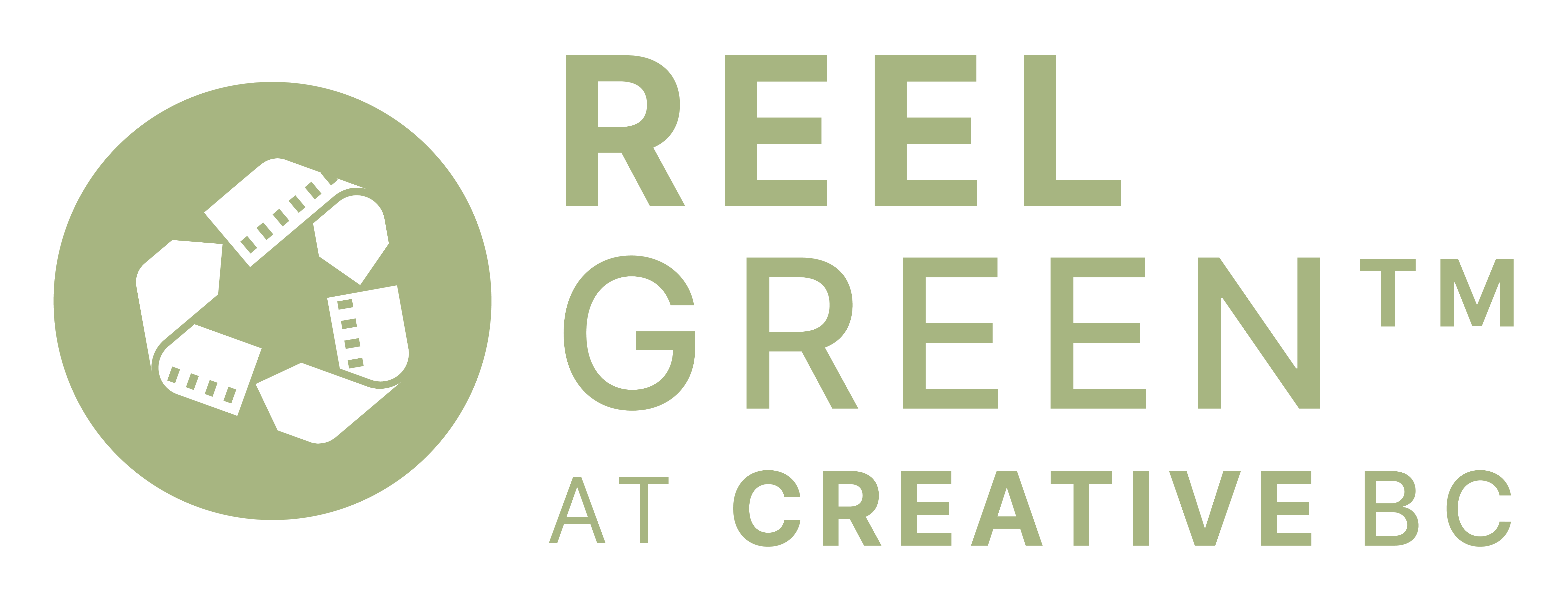Driving Force, a Reel Green™ Advisory Partner and eco-friendly vendor is driving sustainability within the film industry! Across Canada, Driving Force is known for solving problems, keeping promises, and helping communities. Their sustainable role in the Vancouver...
Related News
REEL Earth Day Challenge – Fall 2023 Report
The 2023 #REELEarthDayChallenge brought together film crews, productions, sponsors and industry stakeholders to raise funds towards projects for Metro Vancouver Regional Parks. This year the BC film industry raised $100,000 towards 9 projects. These projects are led...
Reel Green™ Circular Economy Toolkit is Now Live!
A circular economy is one that minimizes waste and makes the most of available resources. In contrast to the traditional linear economy, which follows a "take, make, dispose" model, a circular economy aims to keep products, materials, and resources in use for as long...
Reel Green™ Vendor Spotlight: ShareWares
Reel Green™ Vendor and Circular Economy Committee Member, ShareWares, is an easy and affordable zero-waste packaging company that provides a city-wide borrowing program where reusable cups and takeout containers are used, returned and sanitized for...
Why we do what we do?
EVs, Carbon Literacy, no idling?
Why do we do what we do at Reel Green? Why is sustainability an important topic?
The ultimate goal of Reel Green is to enable the implementation of environmentally sustainable practices within a large resource consuming industry; motion picture. The less the industry consumes in the resources that we use, the less we contribute to global greenhouse gas emissions today. This mindset of reduce and reuse helps ensure that there will be an industry and environment for us to continue to create in for the future.
We want to see a greener future for all of us.
We need to continue the effort and work harder to reduce our greenhouse gas emissions and overall impact. The annual State of the Climate Report, compiled by more than 450 scientists from over 60 countries, describes worsening climate conditions worldwide in 2017.
Below are key highlights from the report as noted by journalist David Twomey of the Australian media outlet Eco News.
The 300-page report issued by the American Meteorological Society and the National Oceanic and Atmospheric Administration (NOAA) mentioned the word “abnormal” a dozen times, referring to storms, droughts, scorching temperatures and record low ice cover in the Arctic.
The annual global average carbon dioxide concentration at the Earth’s surface climbed to 405 parts per million (PPM), “the highest in the modern atmospheric measurement record and in ice core records dating back as far as 800,000 years,” said the report.
The world’s highest temperature ever for May was observed on May 28 in Turbat, western Pakistan, with a high of 53.5°C.
“The 10 warmest years on record have all occurred since 1998, with the four warmest years occurring since 2014,” said the report.
In March, sea ice extent saw its lowest maximum in the 37-year satellite record.
Meanwhile, the Arctic sea ice minimum in September was the eighth lowest on record and covered 25 percent less area than the long-term average.
Finally, it said ocean warming over the past few years has been blamed for widespread coral bleaching, as the disease spreads in this precious habitat for fish and marine life. “The most recent global coral bleaching lasted three full years, June 2014 to May 2017, and was the longest, most widespread and almost certainly most destructive such event on record,” said the report.
So what can we do to help?
Don’t be discouraged!
As a scientist, Climate Change Activist, and Planetary Society CEO, Bill Nye, puts it "Being a little scared is not bad," but Nye encourages people to not back away. "In science education or environmental education, you can't get discouraged or give up," he says in a lecture at Stanford University.
Everyone has a part to play in establishing widespread environmental change. Even down to the individual. In motion picture, as storytellers that reach millions of people across the globe, our industry has a unique platform to instill cultural change. Not just in the stories and narratives that we tell through motion picture but also in how we create those stories.
Some starting steps are to take a Carbon Literacy Course, provided for free by Reel Green. Learn the in’s and out’s of carbon’s impact on the environment and how that relates to our work on production. You can also take part in Reel Green General Meetings, subscribe to the newsletter to learn more on sustainable news and tips, and utilize resources like the Green Production Guide or local green vendors like Sustainable Lockup, Keep it Green Recycling, Portable Electric and more! Or in keeping with August’s theme of Alternative Transportation, consider riding your bike (or human-powered alternative), taking public transit, or even switching to EV or encouraging your work or production to switch to EVs as fleet vehicles (now provided by Driving Force).
A key finding from the State of the Climate Report report was that the top three most dangerous greenhouse gases which are released into Earth’s atmosphere, carbon dioxide, methane, and nitrous oxide, reached new record highs in 2017.
Both carbon dioxide and nitrous oxide are bi-products of an average internal combustion engine vehicle. By working together we can make a lot of change!
Stay Connected
Subscribe to our newsletter

